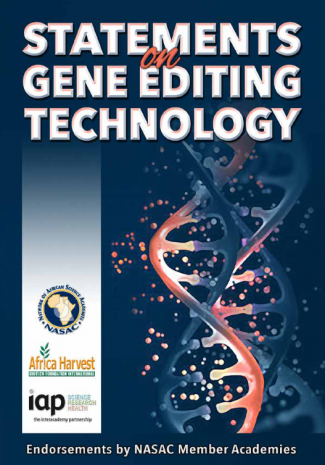Africa is the continent most vulnerable to climate change and is now experiencing serious shortages of food, and in some cases, desperate famine. Change is needed in our agricultural and pastoral practices to provide food security for the populations of our nations and to ensure that our farmers and pastoralists can continue to earn a livelihood.
We need to reduce the displacement of peoples whose agricultural practices are failing, and to minimize conflict arising from forced migrations.
Given these drivers, in this statement we address gene editing for plants and animals in terms of agricultural and food production purposes. It is a route to increased crop yields and higher drought resistance.
The advent of gene editing has evoked both enthusiasm and controversy, creating regulatory and governance challenges worldwide. Special attention must be given to policies and governance, as well as contributions addressing regulatory aspects of gene editing for plants. The success of gene editing techniques cannot be guaranteed by science alone. Political influence and social acceptance significantly contribute to market performance of crops. The acceptance and application of gene editing technology requires a framework that is approved by legislation and policy of national government.
The role of science in policy and decision-making is crucial. It is very important that policy dialogue is encouraged between policy-making government agencies and different actors to guide decision-making on gene editing technology, especially at national levels.


